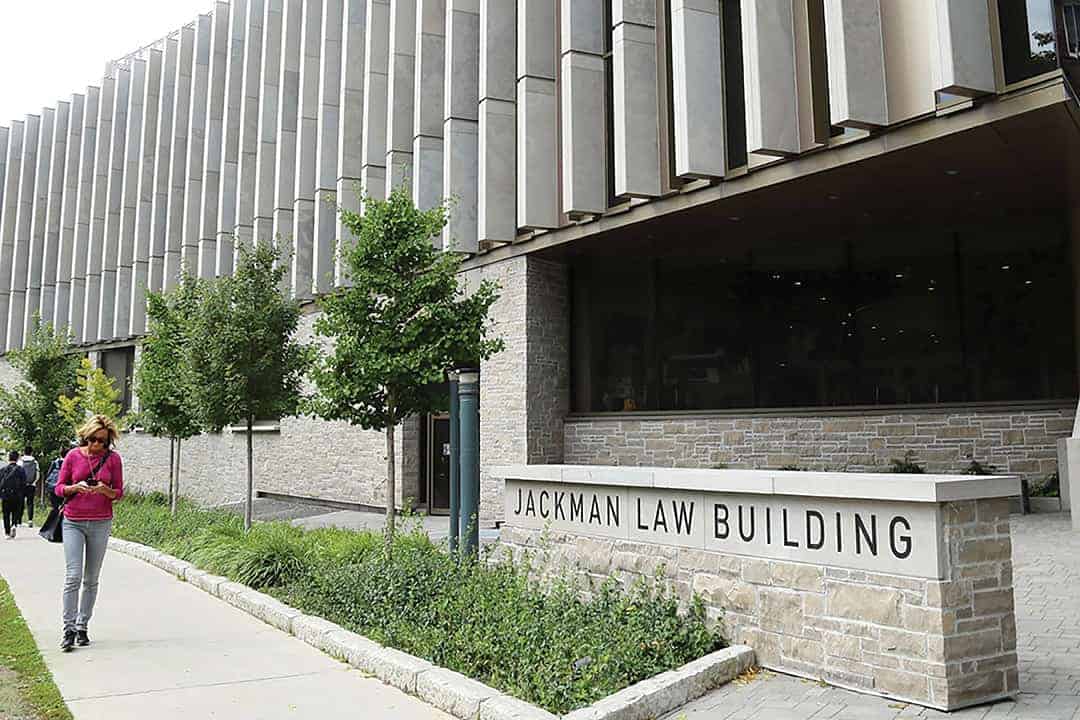The Canadian Association of University Teachers (CAUT) recently reported that it will pause the censure that it had imposed on U of T since April. The CAUT arrived at this long-awaited decision after U of T re-offered the position of director of the Faculty of Law’s International Human Rights Program to Dr. Valentina Azarova, though the scholar declined the offer.
Azarova, a human rights lawyer and academic, was allegedly offered the position last fall, but U of T rescinded her offer. This decision was allegedly made following concerns from a sitting tax judge — who is also a donor to the university — that Azarova’s academic writings on Israel’s occupation of the Palestinian territories would supposedly tarnish the university’s reputation.
The alleged decision to rescind the job offer due to her previous work was a grievous infringement of academic freedom and, as such, sparked outrage among academics in Canada. Subsequently, the CAUT imposed a censure on U of T and asked its 72,000 members to boycott the institution by not accepting university appointments or attending speaking engagements.
Amidst growing criticism following the CAUT’s censure, the university commissioned Thomas A. Cromwell, a retired Supreme Court justice, to conduct an independent investigation. The Cromwell report confirmed that the donor opposed Azarova’s appointment because she is allegedly a “major anti-Israel activist.” However, the report did not conclude that the donor’s interference resulted in Azarova’s job offer being withdrawn.
Both the findings in Cromwell’s report and the hiring scandal in its entirety have raised questions about the power that financial donors have over institutions such as U of T and the intellectual freedom granted to those institutions’ faculty members.
Azarova’s work encompasses various issues. Aside from Israel’s occupation of Palestine, she also examined the jurisdiction of the International Criminal Court and the legal responsibilities of Israel’s diplomatic and trade partners. More recently, she has investigated migrant rights, structural violence at international borders, and the use of European Union funds by war criminals.
Some may argue that by writing on Israel’s occupation of Palestine, Azarova has expressed an anti-Israel bias. However, Itamar Mann, an Israeli human rights lawyer and professor, maintains that Azarova’s opinion on Israel and Palestine is “very mainstream under international law: that settlements are illegal, that the occupation cannot continue indefinitely.” Thus, the judge that opposed Azarova’s appointment within the law school may have found fault not with her specific views on Israel’s occupation of Palestine, but rather with the very fact that she wrote about Israel and Palestine.
U of T has noted that the position offered to Azarova was managerial and not academic, meaning that it does not have the same academic freedom protections that academic faculty do. Nevertheless, the alleged withdrawal of the job offer does constitute what could only be described as a calamitous dereliction of academic freedom. Thus, the notion that the issue is now resolved simply because Azarova has been re-offered the position grossly oversimplifies the events that transpired.
According to the CAUT, “academic freedom includes the right, without restriction by prescribed doctrine, to freedom to teach and discuss; freedom to carry out research and disseminate and publish the result thereof… Academic freedom always entails freedom from institutional censorship.”
Academic freedom fosters thoughtful discussions and allows academics to further the boundaries of what we know without fear of retribution. A lack of true academic freedom undermines the intellectual inquiry that lies at the very core of higher education. The hiring scandal happened because people are often discouraged from writing about controversial subjects. Azarova was allegedly ostracized simply because she previously wrote on the topic of Israel and Palestine.
As such, this matter will never truly be resolved until the university acknowledges any misconduct and takes responsibility for any mistakes it has made. Only then will the university make amends to Azarova for the unjustified denigration of her reputation and previous work.
Moving forward, U of T needs to ensure that such a breach of academic freedom does not occur again and that financial donors are not able to manipulate its hiring processes because of their own political considerations.
In light of these concerns, a U of T spokesperson clarified that U of T’s Provostial Guidelines on donations have been modified to ensure “institutional autonomy and confidentiality in all hiring decisions.” Furthermore, according to the spokesperson, all hiring staff have undergone training to better understand the guidelines for donor relations, and an advisory group is currently developing academic freedom protections for managerial staff.
It is worth noting that the true strength of higher education lies in its ability to stimulate open and often contentious dialogue at the forefront of debates within the academic community. With that being said, a threat to academic freedom is a threat to the very fabric of higher education. By understanding how to maintain academic freedom, we can ensure that thought-provoking dialogue remains possible at U of T.
Shernise Mohammed-Ali is a third-year neuroscience, psychology, and English student at Victoria College. She is the associate comment editor at The Varsity.


